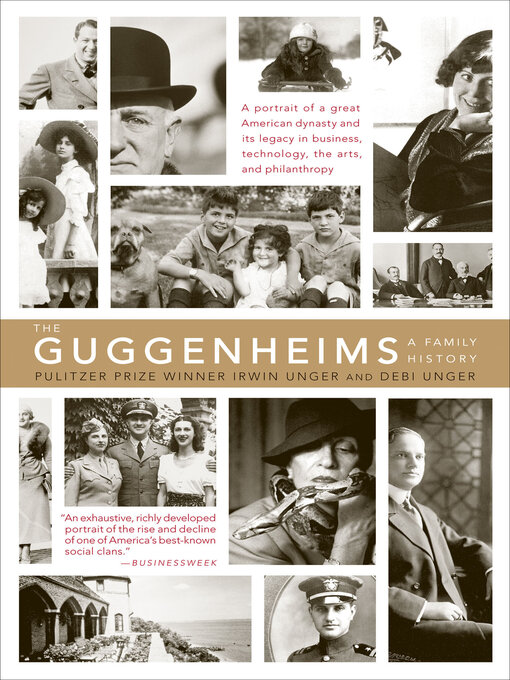A portrait of a great American dynasty and its legacy in business, technology, the arts, and philanthropy
Meyer Guggenheim, a Swiss immigrant, founded a great American business dynasty. At their peak in the early twentieth century, the Guggenheims were reckoned among America's wealthiest, and the richest Jewish family in the world after the Rothschilds. They belonged to Our Crowd, that tight social circle of New York Jewish plutocrats, but unlike the others — primarily merchants and financiers — they made their money by extracting and refining copper, silver, lead, tin, and gold.
The secret of their success, the patriarch believed, was their unity, and in the early years Meyer's seven sons, under the leadership of Daniel, worked as one to expand their growing mining and smelting empire. Family solidarity eventually decayed (along with their Jewish faith), but even more damaging was the paucity of male heirs as Meyer and the original set of brothers passed from the scene.
In the third generation, Harry Guggenheim, Daniel's son, took over leadership and made the family a force in aviation, publishing, and horse-racing. He desperately sought a successor but tragically failed and was forced to watch as the great Guggenheim business enterprise crumbled.
Meanwhile, "Guggenheim" came to mean art more than industry. In the mid-twentieth century, led by Meyer's son Solomon and Solomon's niece Peggy, the Guggenheims became the agents of modernism in the visual arts. Peggy, in America during the war years, midwifed the school of abstract expressionism, which brought art leadership to New York City. Solomon's museum has been innovative in spreading the riches of Western art around the world. After the generation of Harry and Peggy, the family has continued to produce many accomplished members, such as publisher Roger Straus II and archaeologist Iris Love.
In The Guggenheims, through meticulous research and absorbing prose, Irwin Unger, the winner of a Pulitzer Prize in history, and his wife, Debi Unger, convey a unique and remarkable story — epic in its scope — of one family's amazing rise to prominence.


